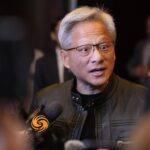When ChatGPT’s user base exploded from 980,000 to over 10 million in South Korea within a year—an eleven-fold increase that outpaced growth in any other market—OpenAI’s executives knew they had discovered something extraordinary.
This wasn’t just viral adoption; it was a powerful market signal that drove the company to fast-track its South Korean expansion and establish Seoul as its third Asian headquarters.
But the real story behind OpenAI’s Korean strategy reveals a calculated bet on a country that offers something no other market can: a complete AI ecosystem ready for transformation.
What the numbers reveal
This explosive growth tells a deeper story than simple user acquisition. ChatGPT’s monthly active users reached 10.72 million as of April, more than doubling from March’s 5.09 million in just one month, according to mobile data tracker Mobile Index.
While OpenAI itself has not officially disclosed detailed user metrics for South Korea, third-party data reveals the scope of adoption.
Total usage time among Korean users jumped from 8.08 million hours in March to 23.7 million hours in April, while new app installations rose nearly fourfold over the same period, from 1.44 million to 4.67 million, Mobile Index reported.
But the metrics that matter most to OpenAI aren’t just about volume—they’re about value. Perhaps more telling is Korea’s global ranking in paid subscriptions. South Korea has the largest number of paying ChatGPT subscribers after the United States, according to OpenAI.
This isn’t just about free users experimenting with AI—Koreans are putting money behind their adoption, indicating genuine value recognition and sustained engagement.
Beyond user numbers: A strategic ecosystem
What makes the OpenAI South Korea expansion particularly strategic isn’t just the user base, but the ecosystem itself.
“Korea has an ecosystem that encompasses all areas of AI, from semiconductors to software and startups, and is a leading AI country where various generations, from students to the elderly, use AI daily,” Kwon said according to various local reports.
This ecosystem advantage is crucial. While many countries excel in specific AI domains, Korea offers a complete vertical stack—from Samsung’s cutting-edge semiconductors that power AI computing to a population that has already integrated AI into daily workflows. “There are many companies leading the global market in areas where open AI is seeking cooperation, such as healthcare, bio, robotics, manufacturing, and finance,” Kwon noted.
Timing and competitive pressures
The timing of this expansion reveals competitive pressures that extend beyond simple market opportunities. As ChatGPT tightens its grip on the market, domestic tech firms are facing the risk of losing ground on their home turf due to delayed AI rollouts or insufficient competitiveness.
Korean companies like Kakao only began the first closed beta test of its AI assistant “Kanana” on May 8. Meanwhile, SK Telecom’s “A.Dot” and Wrtn Technologies’ “Wrtn” each maintain MAUs around just one million.
This competitive landscape suggests OpenAI’s expansion isn’t just about growth—it’s about securing a market position before domestic competitors can mount effective challenges. The company is moving quickly to establish partnerships with major Korean firms, including recent collaborations with the Korea Development Bank, Kakao, Krafton, and SK Telecom.
The infrastructure play
Perhaps the most significant aspect of OpenAI’s South Korea expansion lies in its infrastructure ambitions. The company’s “OpenAI for Countries” program, which integrates software by cooperating with governments and local companies to build a data centre locally and providing locally customized ChatGPT on top of its infrastructure, positions Korea as a potential regional hub.
“To achieve Korea’s goal of becoming a leading AI country in 2027, infrastructure investment is essential,” Kwon stated, hinting at deeper cooperation possibilities. This approach mirrors OpenAI’s recent partnership with the UAE, where OpenAI previously signed an infrastructure construction cooperation with the United Arab Emirates (UAE) as its first overseas partnership on the 22nd.
Critical considerations
This expansion however isn’t without challenges. The rapid growth in ChatGPT usage has sparked concerns about domestic platform viability. One industry insider commented, “ChatGPT is expanding its influence beyond search into various sectors, meaning no other app category can afford to be complacent.”
Moreover, regulatory and political considerations remain complex. Kwon’s meetings with both major Korean political parties—the Democratic Party and People Power Party—indicate that successful expansion requires careful navigation of local political dynamics.
Strategic implications
OpenAI’s South Korea expansion ultimately signals a broader strategic shift from pure technology development to geopolitical positioning in AI infrastructure.
By establishing deep roots in Korea’s comprehensive AI ecosystem, OpenAI isn’t just gaining users—it’s securing a strategic foothold in Asia’s most AI-ready market.
The success of this expansion could serve as a template for OpenAI’s global strategy, demonstrating how AI companies must move beyond software services to become integral parts of national technological infrastructure.
For Korea, this partnership offers accelerated AI development; for OpenAI, it provides a proving ground for its “AI for Countries” vision. The question isn’t whether this expansion will succeed—the user numbers already prove market demand.
The question is whether this model of deep, infrastructure-level partnerships will become the new standard for AI companies seeking global influence in an increasingly competitive landscape.
While Korean tech giants like Kakao scramble to launch their first AI assistants and SK Telecom’s offerings languish at just one million users, a foreign competitor has already captured over 10 million Korean users and shows no signs of slowing down.
OpenAI’s South Korea expansion isn’t just about international growth—it’s about seizing control of Asia’s most strategically valuable AI market before domestic players can mount an effective defence.
(Photo by Dima Solomin/Unsplash)
See also: Sam Altman: OpenAI to keep nonprofit soul in restructuring
Want to learn more about AI and big data from industry leaders? Check out AI & Big Data Expo taking place in Amsterdam, California, and London. The comprehensive event is co-located with other leading events including Intelligent Automation Conference, BlockX, Digital Transformation Week, and Cyber Security & Cloud Expo.
Read the full article here













